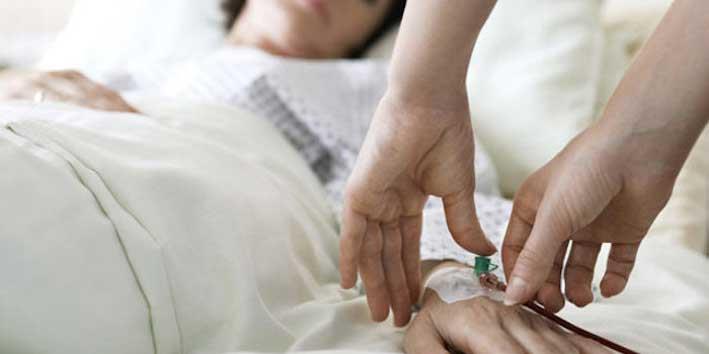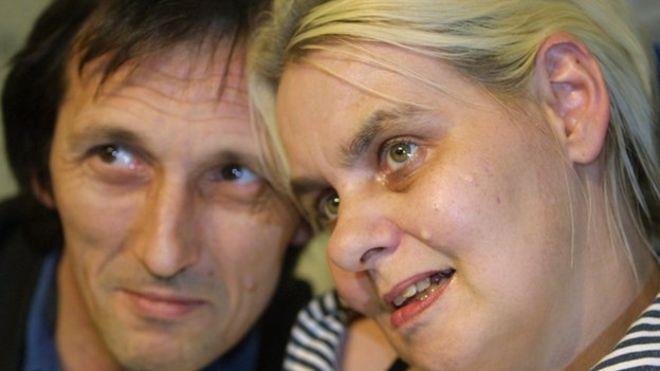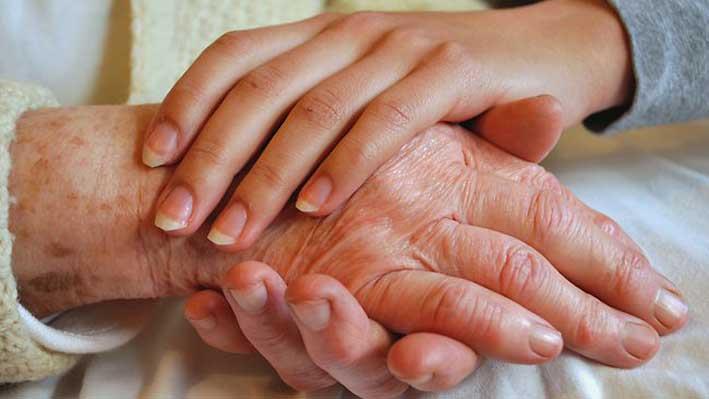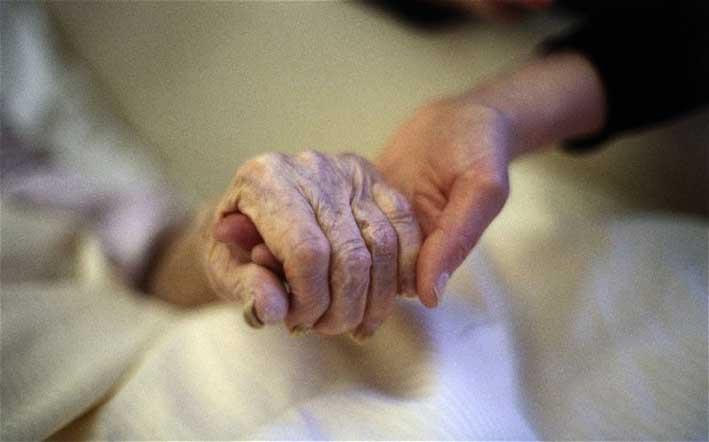There is a big difference between euthanasia and a patient refusing treatment, said Professor Pierre Mallia during an interview with The Malta Independent on Sunday to discuss a project on end of life care that will see a summer conference held here in Malta.
‘The Endcare Project’ will address the critical issues of end of life treatment, and while repudiating euthanasia in all its forms, will examine the shortcomings of health-care professionals who, at one extreme might be recommending extraordinary measures of nutrition, hydration and advanced life support systems, and at the other extreme might not even be giving sufficient pain relief for those who need it for fear of hastening a patient’s demise. Project coordinator Prof. Mallia said that science has not proved that pain relief could hasten death, but said that even if it does, moral guidelines say one can still administer it as long as a progressive course is followed. In fact, he explained, this is accepted by the Catholic Church.
Prof. Mallia explained: “There is a lack of public awareness on what end of life care should be like. It’s part of life and is not meant to be seen as a bad thing. The idea is to make it as comfortable as possible. Turning to the moral rules, it is clear that we cannot treat patients without their consent and patients have the right to refuse treatment.”

Malta has seen the topic of euthanasia discussed quite openly recently, but Prof. Mallia made a clear distinction between euthanasia and the refusal of treatment.
“Many patients are afraid of dying in pain, or receiving extra treatment they do not want”, he said. “Some doctors will find themselves in a legal vacuum and are concerned about the lack of a legal framework in this regard, while others are concerned about the moral issues involved in end of life care.
“Sometimes, extraordinary treatment causes suffering, even though it prolongs life and sometimes doctors feel obliged by family members to administer extraordinary treatment. We must, however, enter into a dialogue with patients and family members in order to decide what is best for the patient. Sometimes the patient might not want extraordinary care. Many people think that doctors decide what is ordinary care and what is not, yet this is not the case: the patient must decide.”

As an example, Prof. Mallia mentioned that some patients might not want to be resuscitated. “Resuscitation is generally accepted as an extraordinary treatment, yet for others it may be considered ordinary treatment.” Giving another example, he said: “Many hospital personnel feel uncomfortable not providing a drip. Now in normal circumstances this is ordinary care, but it can become extraordinary if it causes discomfort and the patient does not want it or need it. At that stage we have to discuss it, as if a vein goes thrombose and we need to insert another needle, we would probably need to jab 20 to 30 times in the next 24 hours, thus causing quite a bit of discomfort.”

Defining the difference between the right to refuse treatment and euthanasia, he mentioned the UK case of Diane Pretty. “She had motor-neurone disease and asked the court to allow her husband to take her off the machines. The court refused the request, as euthanasia is illegal in the UK and it was not in the interests of the state to allow such a thing. There was a second case, however, of someone with a similar disease, who refused to be put on a respirator. It was decided that she had the right to refuse treatment. Had Diane Pretty’s lawyers filed a request to refuse continuation of treatment, rather than requesting euthanasia, it would probably have been accepted.
“Remember, patients can only refuse extraordinary treatment, not, ordinary care. If a patient refuses to be fed and has to be force fed, then that becomes a complicated area. As the medical profession, we are obliged to provide basic care like nutrition and hydration.
“There is a difference between causing a death and allowing to someone die”, he stressed. “Doctors are not obliged to give futile treatment, such as when someone in the advanced stages of lung cancer gets a chest infection, one would not be obliged to treat it unless, of course, the patient wanted to be treated.

“The reality is that death is something that must be diagnosed. There are a number of things that indicate impending death. It is at that point that one must discuss, with relatives and patients, whether they would like to continue with certain cures, and that it is time to move from a cure to a care approach. If we raise expectations too high, the relatives might feel that a patient died because we didn’t do our best.
“We have to balance what is really good for the patient and what could possibly be good for the patient. For example, is that needle jab really useful for a patient who is dying? I am not in favour of euthanasia, but I am in favour of making a distinction between causing the death of someone and allowing someone to die.”
Professor Mallia explained that concern is sparked in most people when it comes to asking why someone should die in pain. “Well, nobody should die in pain, but that is not an excuse for euthanasia. I believe that in 85 per cent of cases, those who agree with euthanasia either don’t know their rights, or are afraid.”

It is not the ethos of the medical profession to cause a death
“It is not the ethos of the medical profession to cause the death of people, but it is our ethos to provide end of life care.” Turning to a particular amyotrophic lateral sclerosis (ALS) patient, Professor Mallia said that that if he does not want doctors to provide him with certain treatment, like being put on a respirator, he has the right to refuse. Obviously we have an obligation to keep him comfortable and not let him suffocate to death, by providing morphine etc., so he can die a natural death. That is not causing death, it is allowing a natural death, and this is allowed from both the moral and the Catholic point of view”.
He spoke of a case involving a young lady in the USA, Karen Ann Quinlan, who collapsed at a party, was taken to hospital, and ended up with brain damage. She was put on a respirator and the family were told that there was no hope of recovery, but she was not brain dead. Their parish priest helped the family take the case to court and it was the first historical instance where a court of law recognised the teachings of a social institution over scientific knowledge, as science said that one cannot switch off the machines until she is brain-dead”.
“During the time of Pope Paul XI, the Catholic Church also considered it immoral to over-treat patients, which could result in a vegetative state. Vegetative states only occur as a side-effect of over-enthusiastic treatment, such as if one resuscitates someone past the 15 minute-mark. Medicine is at a stage where we must re-evaluate what all this new technology is bringing about. If a person has a disease and can be given two extra years of live but would be in a wheelchair, on a respirator and would have to be spoon-fed, some might find that useful while others might not want it. A person has a right to refuse that treatment, and we have to acknowledge that right.”

“In the case of the gentlemen with ALS, I have advised that he talks to his lawyers and medical team while he is still capable to come up with an advanced care plan. Unfortunately there is no legal framework so I advised that they have a legal document which can be upheld so nobody can sue the doctors.”
A living will (another possibility currently being discussed publicly) is an advanced directive, and it is different to an advanced care plan. An advanced directive usually needs a legal framework, and there have been both positive and negative experiences. “Planning ahead is different. It’s telling the patient the state of affairs, telling the patient that the disease will progress and that we don’t know how long he or she has to live. But there may come a point when we would need to put him or her on a respirator. The patient might say he or she would like to be treated up to this point, but would not want to be placed on a respirator, and in their plan they would say they don’t want it forced on them because they would be incompetent when that time comes.
“Doctors can treat patients in emergency situations or in situations where the patient is not competent, thus this is something that needs to be done now. If we find a way of getting around the clear wishes of this patient that he not be put on a respirator, and put him on one, then we would have failed as a profession in Malta. It’s about the morality of our profession”.
Asked what he thinks about living wills, Prof. Mallia explained that when something becomes legalised, it becomes binding and a relative could hold doctors to something a patient signed years ago as the patient might not be capable of proper thought in his or her condition. “This is becoming complicated in northern countries, where they are strict about sticking to the letter. I think we should think about it, but in terms of helping people approach their disease. I believe we should help them plan ahead. We as doctors need to be trained as to how to approach this”. He explained that many countries now are thinking about care plans, which can be modified.
He said that a legal framework is needed regarding the right to refuse treatment. “However, patients cannot ask for things that are illegal, such as euthanasia.”

The Endcare Project in October
Turning back to the project which will begin in October, he explained that it will not reinvent moral guidelines, “but rather it’s about informing healthcare professionals. It’s there to bring out their concerns. Then, we want to devise a training curriculum that not only looks at the medical aspect but also looks at the psycho-social aspect in different countries.”
Endcare is a three-year research project between the University of Malta, Dublin City University and the University of Anquila, Italy. It is funded by Erasmus+ and is aimed at educating and alleviating the concerns of healthcare professionals on the proper practice of end of life care through the harmonisation and dissemination of best practice. The project will bring together leading academics, scholars and researchers from the Pontifical Academy of Life, UNESCO, EthiMed, the Fondazione San Raffaele and leading practitioners in the field. It will consist of three summer schools spread over three years, with one session being held in Malta between 3 and 7 October and the other two being held in Ireland and Italy.
“The idea is to create a curriculum at the end of the day. This curriculum will not be standard for all of Europe, delegates will be able to take it back to their own country and adapt it. Each country has its own limitations. One limitation here in Malta – although the Minister of Health is in favour of it – is not having an in-house health ethics committee which can create policy. I think this is important and would be useful. I personally like to distinguish between bioethics, which is a philosophical discussion of issues, and clinical ethics in terms of application. We know the bioethics of the end of life, so we’re not here to discuss what is morally right and wrong, or euthanasia, but through the workshops we want to discuss clinical ethics. Why is it so hard to apply so and so clinically? Why do you still hear of people saying their relatives died in pain? What is the fear that healthcare professionals or relatives face? Obviously the curriculum would need to evolve.”
More information about the Endcare Project can be found at www.um.edu.mt/ms/endcare